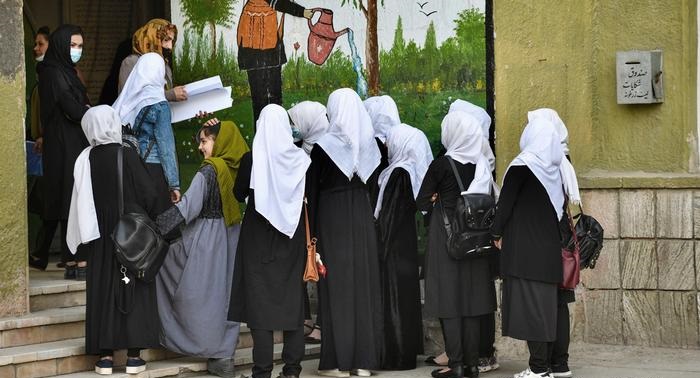RASC News Agency: The United Nations Children’s Fund (UNICEF) has announced the reconstruction of 165 schools across Afghanistan, aiming to provide improved educational facilities for both boys and girls. According to UNICEF’s latest report, these schools will be equipped with solar-powered electricity systems, modern sanitation facilities, designated handwashing stations, and drilled water wells to ensure a safe and hygienic learning environment. The report states: “With the support of the Government of Japan, UNICEF, in collaboration with the United Nations Development Programme (UNDP), is constructing 165 schools across eastern, southern, and central Afghanistan. These institutions will provide educational opportunities for over 33,000 children half of whom are girls.”
Each school will feature solar-powered lighting, ensuring classrooms remain functional even in areas with unreliable electricity. Separate sanitation blocks for boys and girls will be installed, alongside drilled wells and handwashing stations to provide access to clean drinking water and promote hygiene. To enhance security, high perimeter walls will enclose the schools, transforming them into protected spaces conducive to learning. UNICEF underscores the severe educational crisis in Afghanistan, revealing that nearly seven million children remain out of school due to economic hardship and systemic restrictions 60% of whom are girls. The agency further reports that at least half of all public schools in Afghanistan lack adequate classroom space, while 58% do not have access to clean drinking water or sanitation facilities.
Additionally, less than half of Afghanistan’s public schools are safeguarded by protective boundary walls an essential factor in ensuring girls’ attendance. UNICEF emphasizes that enclosed school premises provide parents with a sense of security, which has proven to significantly increase female enrollment. Before the construction of these new schools, students were forced to study in open fields, sitting on the bare ground under makeshift tents or the shade of trees, exposing them to extreme weather conditions and further deterring attendance.






